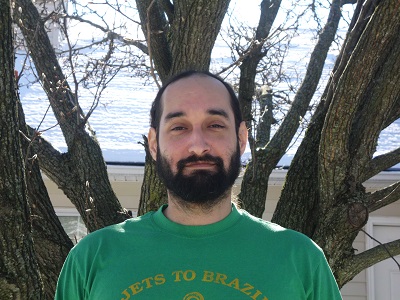
This Spiral
Contributor’s Marginalia: John A. Nieves responding to D.S. Waldman’s “The Etiquette of Grief”
Etiquette is merely a complex form of ritual, one that governs proper interactions. In D.S. Waldman’s beautiful lyric, “The Etiquette of Grief,” the poet uses the ritual component of etiquette to challenge and ultimately subvert the properness component. In its repetition, its looping movement, its kaleidoscoping associations and its spiraling music, the poem opens out a complex understanding of grieving as a social action.
The looping movement of the poem reminds us that cycles are not circle, but a spiral twisting forward. We see familiar patterns, but at new times and in new contexts. In this way, we are always changing. In this we always have something to hold on to. The main terms do this dance: children, cover, eye, become, invisible, remain, children, remain, invisible, wide, eye, dead, become, wide, dead, eye, sunlight, darkness, dying, dying, rose, dark, rose, gravesite, gravesite, children, cover, eye. Through the ritual return we see both a progression of grief beginning with children and ritual return of children, cover, eye to mark the cycle of grieving. We move forward while also returning to ground we recognize, but transmuted, changed by both the dance and the dancing of the poem.
The poem also, by inhabiting fourteen lines, calls in the ritual weight of a sonnet without bowing to the properness of a sonnet. By utilizing couplets, the poem calls itself out as a meditation while undermining that meditation with the volta of the sonnet ritual. The children cannot become invisible. They can no longer cover their eyes. This subverts the earlier declared power of children to remain children. This forward progression denies the pseudoclosure of cycle to show the pain of progress: children become not children. Grief costs. Death costs. Life costs. Your bouquet of roses is dying, is darkness. The curiosity in the white of your eyes is death-wide, is death, is life. In this poem, we become the spiral of grief, moving forward in context with every new read, but returning to this beautiful and sorrowful dance, this broken bildungsroman and the cycle it presses into print.
